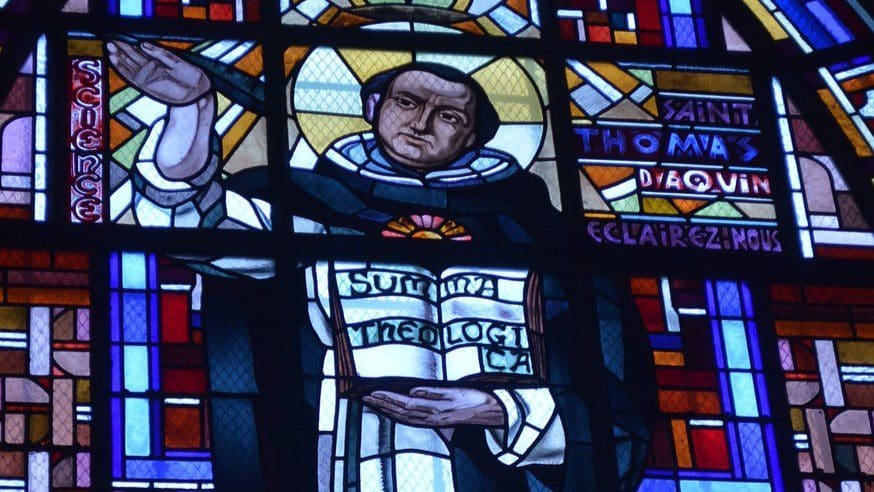The spread of Neo-Scholasticism (or Neo-Thomism) from the end of the 19th century profoundly affected Hungarian ecclesiastic thought. One of its prime representatives, Pál Kecskés (1895-1971), a Roman Catholic priest and university professor, was among the most acknowledged Hungarian theologians and philosophers of his era. Kecskés wrote over a dozen books on Christian doctrines, philosophy, psychology, and social thought. His book on the history of philosophy[1] is probably the most well-known, as it is an ideal introductory textbook for philosophy courses. Unfortunately, Kecskés is relatively unknown even in Hungary. Only some of his admirers (such as the conservative philosopher András Lánczi)[2] call attention to his ideas. His work entitled The Basic Principles of Christian Social Theory,[3] published in 1938 is a supreme product of Neo-Thomistic Christian social philosophy and a fine source for reviving some of the essential ideas of this wave of thought and its political implications.
Kecskés knew the Christian social philosophical tradition, but he was more acquainted with the Thomistic tradition; its forerunners (Aristotle, Plato, Augustine), Thomas Aquinas himself, and his followers (Pope Leo XIII and XI Pius) are all vital sources of inspiration for Kecskés. He maintains that the concept of natural law, a basic principle in social life for Kecskés himself, was critically defined by Aquinas, whose theory is still the guiding principle in Christian legal philosophy. The Christian idea that moral laws are written on the heart of human beings was consistently developed later by natural law thinkers. Without any difficulties, rational human beings recognise that doing all the tasks necessary to ensure the order of social life is a moral good. They also become aware of the twofold principle of natural law: ‘May all get their due and do no harm.’ Even though it is a general rule, various specific rules indispensable for a decent social life (e.g., the right to life, the prohibition of lying, theft, murder, and adultery) can be derived from it. These are necessary but not sufficient rules for social life, and positive law—that cannot contradict divine law and natural law—complements the legal order.[4]
Kecskés’ balanced view on the relationship between the individual and the collective is decisive to his thought.
The fallacies of individualism (liberalism and capitalism) and collectivism (particularly communism) stem from overemphasising one of these two factors; the excessive prioritisation of one aspect undoubtedly leads the other becoming an instrument. They do not consider the truth that individuals and the collective presuppose each other and both have their place in the social order.[5] For instance, Kecskés accuses individualism of dismantling natural medieval communities, thus atomising society, which finally led to a collectivist reaction and the emergence of the the impersonal ‘masses.’[6] The ideologies which confess these principles (i.e. individualism and collectivism) and their conflict cause severe damage to social and economic life; he argues: ‘For more than a hundred years, the struggle between capitalism and socialism keeps social and economic life in constant tension.’[7] This ‘basic’ position of social life was even more challenging by the end of the 1930s amid emerging social movements and reforms. Kecskés’s—justified—anxiousness is palpable. It is this anxiety that probably explains partly why normative aspects colour his descriptive and academic style. What is to be done, then, in social life to solve its dysfunctions?
One of the critical concerns is the nature of proper values and purposes. Choosing the right values is essential, since it is one of the main determinants of the activities carried out by collectives. In social life, Kecskés opts for social justice and social love. The former—which obviously stresses the significance of justice in social life—should be understood as a type of justice whose subject is the value universally relevant to social life, the common good. In other words, social justice is the requirement of natural law flowing from the organic structure of the society, which expects to ensure the good of the whole community from its members, individuals, and sub-communities. The norm of the natural law should serve as a ground for social organisations and especially legislation, which—in every relation—ensures the legal demands and obligations of natural law.[8]
Based on the organic relationship between the members of society and society as a whole, social justice orders the rights and responsibilities; its subject is the common good, it obliges every member, and its claimant is the whole society.[9]
Kecskés maintains that love is a greater value than justice.
Still, love cannot be expected in certain relations and parts of society; there, justice serves as a more stable principle. He also deals with the relation of justice and love, mentioning some differences (e.g., justice usually focuses on providing external goods, while love focuses on persons as the bearers of values). Nevertheless, love and justice ultimately presuppose each other, and the cooperation of the two values provides harmony in social life. Finally, the social sphere fits into the greater order of creation, and its values can also be traced back to a metaphysical basis.
To eliminate the fragmentation of social life, a significant problem in modern societies, the Roman Catholic priest proposed the establishment of vocational orders. The idea originated from medieval times, but Kecskés argued that it must be renewed in light of the new cultural developments. [10] Vocational orders, which are obviously organisations based on professions, can also satisfy the natural inclination of human beings to remain individuals and belong to a community at the same time. This is in line with (or derived from) the papal encyclical Quadragesimo Anno issued by XI Pius in 1931, which brought this concept into focus. Kecskés is aware that vocational associations already exist, but he maintains that more rights and responsibilities should be given to them to have the right place in the organic social order and—to avoid the facilitation of class conflicts—they should not be based on a class structure. In this way, inclusivity can mitigate the conflicts.
These orders are democratic in guaranteeing rights and appreciation for serving society (which means these rights are not derived from the state). Nevertheless, based on the members’ performances, it should also enable the formation of a group of leaders to realise an aristocratic principle.[11] Even though these orders may have their interests, their primal purpose is to serve the whole society; this principle should guide their actions. They have self-government, and their authority covers the social and economic assignments they can solve with their power. This means they are mainly responsible for matters related to their professions, such as determining working conditions, protecting jobs, and avoiding and handling internal conflicts. Still, they also have more extensive economic, social, and cultural functions, for instance, making social policies and serving as a social network. In this way, these organisations take the burden off the state bureaucracy and reduce the tasks of the state. The state can only interfere based on subsidiarity: if support is necessary, if they cannot perform their tasks or if they threaten the common good. Kecskés underlines that
this is the crucial difference between Christian vocational orders and the Italian fascist corporation system.[12]
What is the role of the state in this system? Although vocational orders are not derived from the state, they require the state since—above its role to help if necessary—it organises the relations between these orders. Nevertheless, the central purpose of the state is to maintain legal order by exercising its supreme power (although, obviously, all power comes from God) and promoting the common good. Ultimately, the state has a crucial role in Kecskés’ thought; he frequently underlines its relevance. Still, it is limited. States should act according to divine and natural law and should not interfere with the realm of other communities, such as the family, the vocational orders, or the Church. Considering contemporary state responsibilities, it is interesting that Kecskés relegates education primarily to the families and the Church. This framework is undoubtedly in contrast to the statism of totalitarianism. Considering the system’s structure, Kecskés joins the long Christian philosophical tradition by emphasising that it is the ethos and not the form of the state (which is contingent and must adapt to the given situation) that determines the state’s destiny.[13]
Several other ideas that serve as a basis for social reform proposed by the theologian could have been highlighted, such as his ideas on Christian economy, the community of nations, and the Church. Nevertheless, no matter how complex and extensive this notion of Christian social theory is and how vital the common good is, the primal purpose of Christianity remains mediating redemption and salvation. It ultimately brings human beings into closer communion with God. As Kecskés frequently highlights, the source and the end for human beings is God. This is the basis on which every Christian social theory should rest.
[1] Pál Kecskés, A bölcselet története (A History of Philosophy). Szent István Társulat 1981.
[2] E.g., András Lánczi, Kecskés Pál: A bölcselet története főbb vonásaiban, Kommentár 2011/1.; András Lánczi, Szabadság és törvény, Acta Humana – Emberi Jogi Közlemények. 2020/3.
[3] Pál Kecskés, A keresztény társadalomelmélet alapelvei, Szent István Társulat 1938.
[4] Kecskés, A keresztény társadalomelmélet alapelvei, 113.
[5] This kind of reconciliation of seemingly opposite substances is a frequently and wisely used method of Kecskés. For instance, he also argues for the cooperation of capital and labour instead of envisioning their conflict.
[6] Kecskés, op. Cit. 95-98.
[7] Kecskés, 265.
[8] Kecskés, 126.
[9] Kecskés, 127.
[10] Social life is dynamic; it is constantly moving. Christian social theory should be able to respond to the challenges of the times, considering its purpose, values, and doctrines; Kecskés repeatedly emphasises the relevance of applying the Christian truth in modern times.
[11] These arguments represent that Kecskés was open to democratic principles but still argued that the intellectual-spiritual status of nations highly depends on the intellectual-spiritual conduct of its leading groups. See Kecskés, 217-218.
[12] Kecskés, 233-237.
[13] Kecskés, 326-330.








